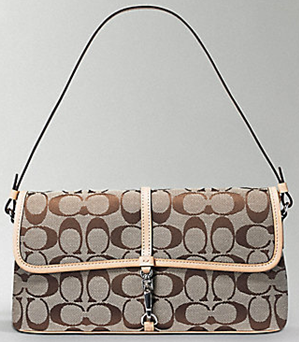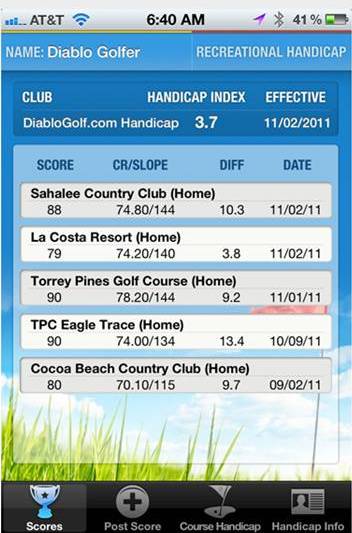Entries in U.S. District Court for the Western District of Washington (8)
Fat Cat Trademark Lawsuit Won't be Decided in Washington
Fat Cat Mustard, LLC, sued Fat Cat Gourmet Foods, LLC, for trademark infringement in the Western District at Tacoma.
The case isn’t staying here.
On November 2, Judge Benjamin Settle dismissed the suit because the defendant did not have the required “minimum contacts” with this district to make personal jurisdiction constitutionally fair.
In support of its motion to dismiss, Gourmet’s managing member filed a declaration stating its records only revealed one shipment to Washington, which she said was made because a Florida customer did not want to travel with the bottle on her way to Washington.
The court found that was not enough to support personal jurisdiction.
“In this case, Mustard asserts that the Court has specific jurisdiction based on Gourmet’s and Gourmet’s distributors’ websites, the shipment of one jar of sauce to Washington, and Gourmet’s cease and desist letters. With regard to the websites, it appears to be uncontested that individuals in Washington could access a website and order Gourmet’s products. Mustard, however, has failed to even allege that any individual in Washington has completed such a transaction. Therefore, Mustard is required to show ‘something more.’ See Pebble Beach Co. v. Caddy, 453 F.3d 1151, 1155–1159 (9th Cir.2006). Mustard offers the letters and the shipment as the ‘something more.’
“First, the cease and desist letters are not ‘something more.’ Mustard has failed to show that the letters caused any harm whatsoever. Moreover, Mustard fails to cite any authority for its proposition that a federally granted property right, such as a trademark, subjects the owner to personal jurisdiction in every forum in which the right may be enforced.
“Second, Mustard misconstrues Gourmet’s transaction. [Gourmet’s managing member] declares that the purchaser was a ‘Florida customer’ who requested that the bottle be shipped to Washington ‘so she didn’t have to travel with it.’ This does not show that Gourmet ‘engaged in commercial activity in Washington’ as Mustard contends. Therefore, based on the record before the Court, Mustard has failed to show that Gourmet ‘purposely availed itself of the privilege of conducting activities in’ Washington.”
The court found the other elements needed to establish personal jurisdiction were similarly lacking.
“In this case, Gourmet has made a compelling case that the exercise of jurisdiction would be unreasonable. Gourmet’s interjection into Washington is de minimus, if any purposeful interjection exists at all. Being a Florida based corporation, Gourmet would suffer a significant burden defending itself in Washington. The parties concede that there is no conflict between Washington and Florida. Washington has no interest in adjudicating the propriety of a non-resident company’s trademark when there is no evidence that a sale was actually consummated in Washington or that there is a likelihood of confusion by Washington consumer. Neither forum appears to be the most efficient for judicial resolution because it does not appear that the parties compete in either Florida or Washington. While Washington may be a more convenient forum for Mustard, it has failed to show that Gourmet purposely interjects itself into Washington and causes harm. Finally, alternative forums exist if either party chooses to bring the action where the defending party is subject to personal jurisdiction. Therefore, the Court finds that Gourmet has shown that it would be unreasonable for the Court to assert personal jurisdiction in this matter.”
The case cite is Fat Cat Mustard, LLC v. Fat Cat Gourmet Foods, LLC, No. 12-5663, 2012 WL 5389149 (W.D. Wash. Nov. 2, 2012) (Settle, J.).
Omission of "Made in China" Label Makes Manufacturer Liable
Here’s a local Lanham Act case with interesting facts. It’s about the sale of waterproof notebooks used by the U.S. military.
Defendant J.L. Darling, Corp. manufactures waterproof paper, which it used in notebooks it sold to the military through its distributor, plaintiff Ira Green, Inc. After Darling terminated the Green’s distributorship, Green found a new source of waterproof paper located in China and proceeded to compete with Darling by selling notebooks using the new paper. However, Green did not place any “made in China” labels on its notebooks until after a Customs and Border Patrol Agent ordered it to do so.
Among various patent, trademark, and false advertising claims the parties allege against each other, Darling claimed that Green’s omission of the “made in China” labels amounted to falsely marking the country of origin of its notebooks, thereby deceiving consumers. Green responded that the issue was moot because it corrected its omission and that Darling provided no evidence that customers were deceived or that Darling suffered any resulting injury.
The parties brought cross-motions for summary judgment on their claims and counterclaims, including on Darling’s two Lanham Act claims for false designation of origin.
On Oct. 9, Western District Judge Robert Bryan granted Darling’s motion and denied Green’s.
It found: “While there is an issue of fact over when and how many of Green’s notebook products eventually received the correct ‘made in China’ stickers, there is no issue of fact that Green did not place the proper country of origin on its notebook products when it first distributed those products. Because the lack of sticker placement was a literally false omission, causation and damages are presumed unless Green can rebut this presumption. Green has shown no facts to rebut. Because Darling and Green both request summary judgment on these two claims, summary judgment should be granted and judgment of liability only entered for Darling, and summary judgment should be denied for Green, on Darling’s second and third Lanham Act claims (Counts II and III).
The case cite is Ira Green, Inc. v. J.L. Darling, Corp., No. 11-05796, 2012 WL 4793005 (W.D. Wash. Oct. 9, 2012) (Bryan, J.).
Coach Sues Snohomish Antique Store for Counterfeiting
 Coach’s branded purse. Genuine article available at a Coach shops;
Coach’s branded purse. Genuine article available at a Coach shops;
counterfeit version at local antique store, Coach’s complaint alleges
On Thursday, Coach, Inc., filed suit against a Snohomish, Wash., nostalgia and antique store for counterfeiting.
The suit, filed in the Western District of Washington, alleges that Pegasus Theater Shops and its owner have been selling handbags, wallets, sunglasses, reading glasses, cellular phone cases, and watches bearing Coach’s trademark, or a trademark that is indistinguishable from Coach’s “CC” logo, without Coach’s authorization.
The suit also names the shop’s owner individually. It alleges she is the “active, moving, conscious force behind the alleged infringing activities.”
The suit asserts claims for trademark infringement, trade dress infringement, false designation of origin, and unfair business practices.
The defendants have not yet filed an answer.
Counterfeiting claims are relatively rare in these parts, though obviously not unheard of.
The case cite is Coach, Inc. v. Pegasus Theater Shops, No. 12-1631 (W.D. Wash.).
Golf App Maker Sues U.S. Golf Association in Seattle for Unfair Competition
 Screen shot from Diablo Golf iPhone app
Screen shot from Diablo Golf iPhone app
XYZ Media, Inc., is a Bellingham-based company that develops Web sites and apps for smart phones. It publishes www.DiabloGolf.com, a social networking Web site for golfers, and an app by the same name. XYZ’s site and app stores a golfer’s scores, courses played, slope ratings, course ratings, and enables users to calculate course handicaps.
The U.S. Golf Association (USGA) provides goods and services to golfers and golf courses. The USGA claims to own common law or registered trademarks in HANDICAP INDEX, COURSE HANDICAP, SLOPE, and COURSE RATINGS in connection with golf.
On June 8, XYZ filed suit against the USGA in the Western District of Washington. The lawsuit claims the USGA wrongly terminated XYZ’s access to USGA data used in the Diablo Golf Website and app in an effort to convert users to USGA’s competing product. XYZ also claims the USGA falsely told Apple that XYZ was not authorized to create iPhone apps using USGA’s data, and threatened suit based on XYZ’s use of the terms “handicap index,” “course handicap,” “slope,” and “course ratings,” which XYZ says are generic and/or functional.
XYZ seeks damages and injunctive relief, as well as declarations of noninfringement. It also seeks to cancel the USGA’s federal trademark registrations.
The suit makes similar claims against the Washington Golf Association.
Defendants have not yet answered the complaint.
The case cite is XYZ Media, Inc. v. United States Golf Association, No. 12-989 (W.D. Wash.).
Court Grants Judgment Against Unauthorized Seller of T-Mobile Products
Defendant George Collett wrongly used T-Mobile’s trademarks in selling T-Mobile SIM cards and airtime without its permission.
Western District Judge Ronald Leighton came to that conclusion April 23 when he granted summary judgment to T-Mobile on its Lanham Act claims and permanently enjoined Mr. Collett from using its trademarks or selling any of its branded products.
The injunction isn’t surprising, given the court’s description of Mr. Collett’s activity:
“Defendant falsely advertised and promoted through interstate commerce that he was an authorized T–Mobile dealer selling genuine T–Mobile products and services. Mr. Collett testified that he sold T–Mobile Phones and SIM cards on eBay and Craigslist, purchased T–Mobile SIM cards, pin numbers and activation codes, posted a sign in his store saying ‘unlimited T–Mobile service $50 a month’ and advertised that he was a T–Mobile dealer. Defendant also improperly advertised his store as a T–Mobile store with an unlimited T–Mobile service plan for $45 per month without a credit check. These representations were false, as the Court finds that George Collett’s store and the T–Mobile products and service plans he offered were not sanctioned by T–Mobile in any way.”
The court also awarded T-Mobile $349,481.64 in damages and found the case was sufficiently “exceptional” that it justified an award of attorney’s fees — in part because Mr. Collett “refused to cooperate in discovery, repeatedly violated Court Orders and continued to violate” the court’s preliminary injunction.